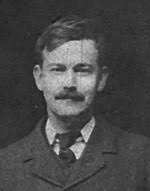Tawney, Richard Henry

Bio: (1880-1962) British economic historian. Richard Tawney studied at Oxford and taught at the London School of Economics. In his works, he studied the development of capitalism, and also gave his critique of capitalism, as well as proposals for reforms. Tawney was very influential as a theorist of the left, and especially the Labor Party.
In his book Acquisitive Society (1920), he criticizes the individualism and greed promoted and encouraged by industrial capitalism. He proposes the creation of a society based on the principles of cooperation, professionalism, and service to the common good. In his book Equality (1931), he points to very large inequalities in the distribution of resources between individuals and classes in Britain. To reduce these huge inequalities, Tawney proposes the introduction of progressive taxation, broad public (state) ownership, and the creation of a generous welfare state. Together with William Beveridge, he drafted a plan for social security in Britain in 1942, which was implemented after the Second World War.
In Religion and the Rise of Capitalism (1926), Tawney studies the relationship between religious attitudes and the development of capitalism in the 16th and 17th centuries. Unlike Max Weber, he questions the hypothesis of a simple causal link between the emergence of Protestantism and the development of entrepreneurship. Tawney believes that the capitalist and entrepreneurial spirit originated before the emergence of Protestantism, as well as that the rise of capitalism was influenced by other, non-religious, factors. Tawney also studied agricultural societies, such as English in the 16th century and Chinese in the 20th century. He was also involved in education in Britain and made proposals for its reform.

